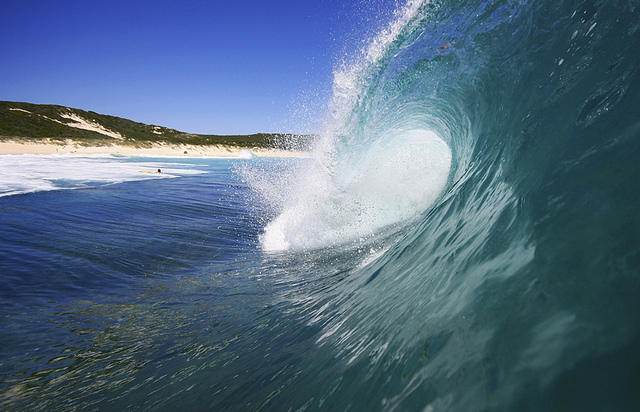
In the Indo-Pacific, there are enormous challenges in oceans management. Last November, the Indian Ocean Rim Association, chaired by Australia, recognised that fact by issuing a formal declaration on the principles for peaceful, productive and sustainable use of the Indian Ocean and its resources. The Pacific Islands Forum that recently concluded also issued the the Palau Declaration, The Ocean: Life & Future ‘Charting a Course to Sustainability‘.
Australia’s a three-ocean country: the Pacific, the Southern Ocean, and the Indian Ocean. We have the largest area of maritime jurisdiction in the Indo-Pacific region. Our security largely depends on maintaining good relations with our archipelagic and island neighbours. Maritime and oceanic issues should be a key element in these relations.
Some of our archipelagic neighbours have large EEZs, including several Pacific island countries with EEZs of over 1 million square kilometres. The economic potential of their maritime zones is mostly unrealised. However, a notable exception is the importance of coastal and oceanic fisheries (see also here), especially for tuna. East African and Indian Ocean island countries also have significant marine resources that aren’t providing full economic benefits to them at present. (chapter 7)
With Australia’s recognised good-standing in managing the marine environment and resources, oceans affairs should be a central plank in our broader political relations, particularly where our neighbours have populations with a high dependence on extensive maritime domains.
We need a greater focus in Australian foreign policy and aid on oceans management and development. That would reflect many of our economic, scientific, environmental, and strategic interests in the surrounding oceans and seas. In coordinating Australia’s maritime aid, there’s a need for a formal process through which those programs and our national interests can be addressed in a strategic manner. With the integration of AusAID into DFAT, the transformed Department can better align foreign, development, and trade policies and programs.
A more coordinated approach to oceans affairs is needed in our foreign and aid policies. The Department of the Environment has some responsibility for regional and international marine initiatives, as well as broader external sustainable development advice. It’s heavily involved in Antarctic and Southern Ocean issues. The Department of Agriculture has responsibility for regional fisheries engagement work. Foreign Affairs leads on international law of the sea issues.
Australia should have a capacity to align regional ocean management with our foreign policy objectives. Coming to grips with the new mandate to align aid with foreign policy objectives means Australia should now create a mechanism in DFAT like the US Government’s Office of Ocean and Polar Affairs, located in the US State Department.
Creating an Office of Ocean Affairs would be instrumental in coordinating DFAT’s oceans expertise, as well as providing a focus for interdepartmental coordination. It’d be a positive step towards advancing our regional foreign and security policy objectives, as well as Australia’s aid program. Our assistance to regional countries in managing their marine zones and exploiting their marine resources contributes to their food security and economic development.
Anthony Bergin is deputy director of ASPI. Image courtesy of Flickr Sunova Surfboards.

